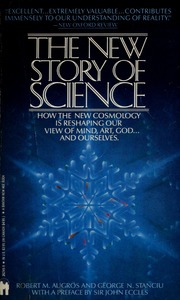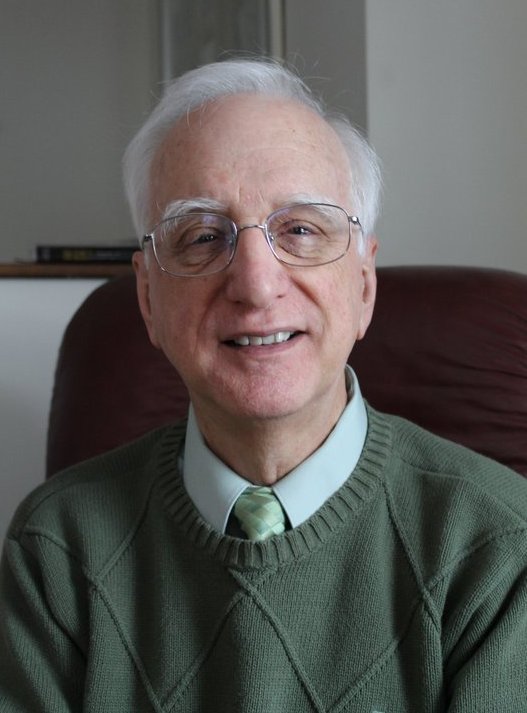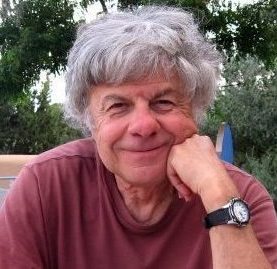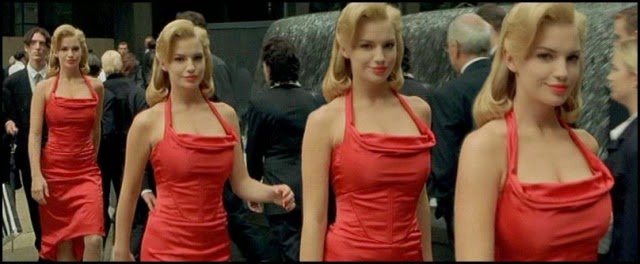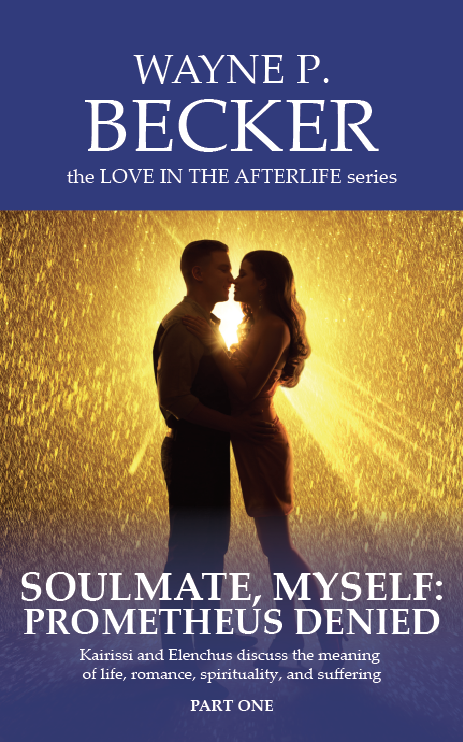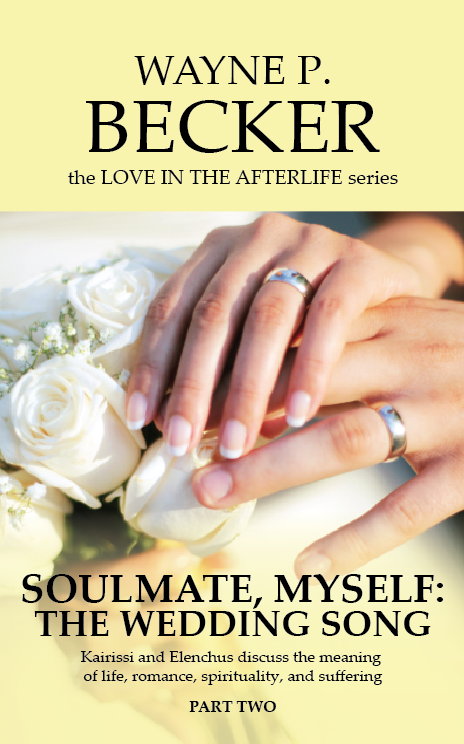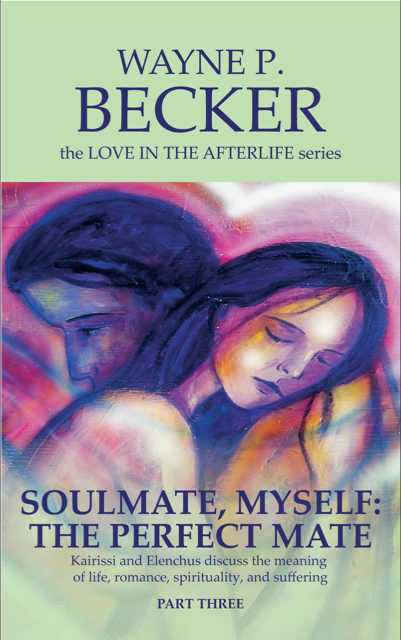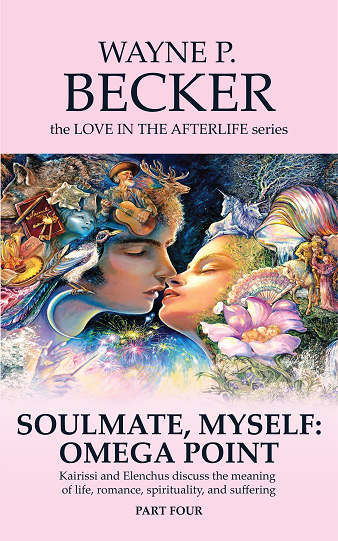|
home | what's new | other sites | contact | about |
|||||||||||||||||||
|
Word Gems exploring self-realization, sacred personhood, and full humanity
Augros & Stanciu's George Stanciu, PhD, theoretical physics
return to "Evolution" main-page
Editor's note: The following discussion summarizes Augros & Stanciu's The New Story Of Science, chapter two, "Mind."
'upward causation' has its place in the pantheon of great ideas but, by itself, quickly flounders The Old Story’s focus on atoms and molecules, as underlying basis and cause for all that we see in the world, had much to be commended. [physicist Amit Goswami calls this "upward causation"] It does explain a lot. For example, water is fluid because molecules slide by each other so easily; a diamond is extremely hard because its carbon atoms align themselves in a rigid lattice framework; we could go on with many examples. However, if rocks, trees, houses, and bodies are made of atoms and molecules, then, some taught, the mind must be thus composed as well Given a materialistic paradigm, it was assumed that mind must be one more expression of atoms and molecules in dynamic interplay. From the perspective of the Old Story, the best way to study the mind is to demonstrate how it derives from matter, that is, the brain. Within this view, mind is pawn of matter, mind cannot choose, has no “free will,” because matter is inert, has no power to move itself, and must rely on outside forces to set it in motion. This is all logical; but not all logic is truth if the underlying premise is askew. The Old Story labeled consciousness as part of mind, supported by material brain, and so consciousness itself was deemed to be one more outgrowth of the dance of atoms and molecules. and if the mind is just one more form of matter, then, when the body dies, the mind would have to die too If consciousness is rooted in material brain, then, when the brain dies, along with the rest of the body, consciousness would not survive death. There could be no post-mortem existence, nothing but darkness once the brain is kaput. Stephen Hawking derided notions of afterlife by saying that there is no heaven for broken-down computers, for dead brains. (See attorney Victor Zammit calling Hawking to task for his “a priori statement.”) These views of consciousness-as-matter, however, began to change in the twentieth century. Brain research conducted by Sir Charles Sherrington and Sir John Eccles gave rise to a “radical distinction between [biological] life and mind.” how does the brain-mind interpret what the eyes 'see' The following example is given to introduce the issue of the complexity of what the mind does. How do the eyes see? rather, how does the brain-mind interpret what the eyes see? A full discussion cannot be reproduced here and you may want to read it for yourself in the “New Story” book. However - we look at a flower garden, profuse with color. The images impinging upon the retina are relayed to the brain. But not as “little pictures of flowers.” The brain receives electrical impulses and these are translated into images. How is this done? There is no color in the brain. The brain is a mass of grey goop. Where do the colors come from? Eccles says that the message received by the brain is like Morse Code with dots in various patterns. How is this reassembled as images of a flower garden?
how does the brain-mind reassemble the 'morse code' of what the eyes send to it An analogy is given. A book is composed of paper, glue, and ink, all of which are made of atoms and molecules. And yet a book’s content cannot be adequately understood in terms of the chemistry of its pages. The content, the ideas, of a book transcends the world of physics and chemistry and represents "a higher order." a higher order is involved So, too, the flower garden we see with the eye is more than a Morse Code of electrical impulses received by the brain. The fact that we perceive the flower garden – like the content of a book – represents "a higher order" that cannot be explained by brain physics and chemistry. sense perception is not matter and cannot be explained by matter “Matter alone cannot account for sense perception. The Old Story can speak of light waves, of chemical changes, of electrical impulses in nerves, and of brain cell activity. But as to seeing, smelling, hearing, tasting, and touching … materialism has nothing to say. Sense perception is real, yet it is not a matter, it is not a quality of matter, and it cannot be explained by matter.” we have five external senses but we also have several internal senses
“In addition to the external senses, we have an array of internal sense powers at our disposal. Consider for a moment that we are able to sense not only white and sweet, but we are able to perceive also the difference between the two. a profound insight: a single external sense cannot discern between loud and hot or white and sweet; therefore, there must be an overriding internal sense which is able to monitor all of the five senses “The eye perceives white but not sweet. The tongue perceives sweet but not white. Neither the tongue nor the eye can discern white from sweet since neither perceives both. “The same holds for the difference between loud and hot. Any faculty that compares two must know both. No external sense can perform this task. Therefore, there must be … an internal sense that can perceive and distinguish all the qualities apprehended by the external senses. “We also have the capacity to call to mind something no longer present. The activity of remembering is something actually present, but the thing remembered is not. Somehow our original sense perception [information or experience gained by the five senses] passed away and yet is still available to us. Memory not only recalls the previous experience but recalls it as past, and can catalogue it chronologically in relation to other past experiences. Even more amazing, is our ability to bring ourselves to recall something forgotten… we can perceive imaginary images, but the five external senses know nothing of this “Imagination is another interior sense power by which we can picture not only things perceived by the five external senses but even things not perceived by them, such as a gold mountain or flea-sized elephant. The imagination, unlike the memory, works freely and creatively on the information coming from the five external senses. “Our capacity for emotion, that is, for love, anger, joy, fear, hope, desire, and sorrow, connects us with the world in still a different way. Every emotion is caused by the act of a sense power, either an external sense, the imagination, or the memory. “For example, anger is provoked by the perception of some injury or insult; fear by the imagination of some future, threatening evil; sorrow by the perception of present pain or by the memory of some past suffering. It is also part of every emotion to be felt. In fact, emotions are sometimes called feelings, because they are so closely allied to the sense of touch. “Nevertheless, though sensation always causes and accompanies every emotion, emotions themselves are not acts of sense perception. Fear does not designate the mere perception of an object but rather an attitude or reaction to that object. An emotion is not the seeing but a response to what is seen, inclining us toward it or propelling us away from it. how does human mind differ from animal brain “The higher animals exercise most of the capacities mentioned so far. But if man is more than just an animal there must be some special capacity distinguishing him from the rest… “We notice that plants, through growth, move themselves but do not know where they are going. A tree sends its roots down into the soil, but not because it is aware that water and nutrients are there. Animals … perceive through their senses where they are going but not why. "For example, a bird, by its power of sight, selects appropriate materials for its nest. But the bird does not build a nest because it understands that it is necessary for procreation. The bird’s reactions are triggered automatically by certain stimuli. The warm spring sun causes the bird’s pituitary gland to produce certain hormones that provoke nest-building activity. Birds injected with the female hormone estrogen will build nests out of season.
“Plants move themselves but do not know where they are going. Animals perceive where they are going but not why. To complete the hierarchy there should exist creatures that know not only where they are going but also why. human mind can reason, pierces to underlying cause; no external sense can do this “We ourselves are such creatures, and the power that enables us to understand the why of things is called mind or intellect. It is also called the power of reason, since by it we can discover the reasons for things. No sense power can perform that task. The tongue can [taste and] tell us that the sea is salty, but not why. “The mind enables us to understand the what of things, which again, the senses cannot reach, not even the imagination. For example, if we try to imagine [that is, to mentally picture] what an animal is, any picture we form in our sensory imaginations will be of this or that particular animal with a definite size shape or color. [But it] is impossible to produce a sensory image of what all animals have in common. Yet it is not impossible for the mind to comprehend what an animal is. “Again, Einsteinian space cannot be pictured [by the five senses, even by the imagination, but it can be understood]. Astrophysicist William Kaufmann writes: ‘It is virtually impossible to visualize a warped four-dimensional space-time.’ Four-dimensional space cannot be sensed or imagined – event by the physicists and mathematicians – but it can be understood. human mind, different from imagination, is a greatly superior knowing power "In science the intellect rises above the restrictions of the imagination, an internal sense. The human mind, then, is not only distinct from the imagination, it is a greatly superior knowing power. The mind does science, not the senses. This is because only the mind can investigate the what and the why of things. “The mind is sometimes called the understanding, an apt name since the nature of a thing stands under the surface qualities apprehended by the senses. And the understanding can also penetrate to the cause that underlies or stands under the effect perceived by the senses. Hence, the name understanding is drawn from the mind’s capacity to know the what and the why of things. human will is part of mind power, is not an emotion and not of the five senses “Finally, another faculty separates us from the animals: the will. It is easy to distinguish the will from emotion since the two can conflict. Courageous actions prove that the will can assert itself even over the fear of death. The emotions are provoked by the senses, but the will chooses according to the judgment of reason… Animals follow the judgment of sensation and emotion, but man has the capacity to choose according to what his reason understands.
this is what surgeon Wilder Penfield discovered about brain-mind from 1000+ brain operations “Now that we have seen what sets the human intellect and the human will apart from our other faculties, we can return to the question of what the New Story has to say about mind and will. Concerning the relation of brain and mind, some of the most remarkable discoveries of [the twentieth] century have been made during surgery on the brains of over a thousand conscious patients by Wilder Penfield.
Dr. Wilder Penfield
"Regarding brain function, Penfield’s observations surpass in authority and completeness all previous indirect evidence from the research with animals and from brain surgery in anesthetized persons. Penfield, the man primarily responsible for integrating the disciplines of neurology, neurophysiology, and neurosurgery, began his pioneering research in the 1930’s, but not until he published The Mystery Of The Mind in 1975 did the full implications of his discoveries become evident…
“Quite accidentally in 1933, Penfield found that gently stimulating certain regions of the brain with electricity triggers flashbacks of memory in a conscious patient. At first he was incredulous, but then he marveled: as his electrode touched the cortex of one young man, the man recalled being seated at a baseball game in a small town and watching a little boy crawl under the fence to join the audience. Another patient could hear instruments playing a melody. Penfield reports: ‘I restimulated the same point thirty times trying to mislead her, and dictated each response to a stenographer. Each time I restimulated, she heard the melody again. It began at the same place and went on from chorus to verse. When she hummed an accompaniment to the music, the tempo was what one would have expected.’ “The patients were always amazed to remember the past in such vivid detail and assumed at once the surgeon was responsible for provoking the otherwise inaccessible memory. Each patient recognized that the details were from his own past experiences, and it was clear that only those things he had paid attention to were preserved in the archives of the brain. “Occasionally, Penfield would warn a patient he was going to stimulate and then not do so. In such cases the patient reported no reaction at all. “Touching the speech area of the brain produced temporary loss of speech (aphasia) in the patient. Since the brain is not sensitive, the patient is unaware that he is aphasic until he tries to speak, or to understand speech, and is unable to do so. Penfield relates what took place on one occasion: ‘One of my associates began to show the patient a series of pictures on the other side of the sterile screen. C.H. (the patient) named each picture accurately at first. Then before the picture of a butterfly was shown to him, I applied the electrode where I supposed the speech cortex to be. He remained silent for a time. Then he snapped his fingers as though in exasperation. I withdrew the electrode and he spoke at once: “Now I can talk,” he said. “Butterfly. I couldn’t get that word butterfly, so I tried to get the word moth!’ the speech mechanism, directed by mind, is not identical with mind “The man understood with his mind what the card portrayed, and his mind called upon the speech center in the brain for the word corresponding to the concept present in his mind. The speech mechanism, therefore, is not identical with the mind, though it is directed by the mind. Words are expressions of thoughts, not the thoughts themselves.
"When the patient drew a blank because of the blockage of his speech center, he was puzzled and ordered the search for the name of a similar object, moth. When that too failed he snapped his finger in exasperation (this motor action not being controlled by the speech center). Then, finally, when his speech center was unblocked, he explained the entire experience using words appropriate to his thoughts. ‘He got the words from the speech mechanism when he presented concepts to it,’ Penfield concludes. ‘For the word he in this introspection, one may substitute the word mind. Its action is not automatic.’ [In other words, the actions of the mind are not directed by automatic stimulus-response but occur outside any puppet-mastering.] the brain can direct movement of the body but the awareness of the body being directed stands above the motor process “Penfield found similar results in brain areas controlling movements: ‘When I have caused a patient to move his hand by applying an electrode to the motor cortex of one hemisphere, I have often asked him about it. Invariably his response was: “I didn’t do that. You did.” When I caused him to vocalize, he said: “I didn’t make that sound. You pulled it out of me.” “These involuntary movements are like a patient’s leg jumping in response to the tap of a physician’s hammer. Everyone recognizes that such movements are not acts of the will. Penfield summarizes: ‘The electrode can present to the patient various crude sensations. It can cause him to turn head and eyes, or to move the limbs, or to vocalize and swallow. It may recall vivid re-experience of the past, or present to him an illusion that present experience is familiar, or that the things he sees are growing large and coming near. But he remains aloof. He passes judgment on it all. He says “things are growing larger” but he does not move for fear of being run over. If the electrode moves his right hand, he does not say “I wanted to move it.” He may, however, reach over with the left hand and oppose his action.’ consciousness itself is separate from the brain's neuronal activity “As a result of observing hundreds of patients in this way, Penfield concludes, ‘The patient’s mind, which is considering the situation in such an aloof and critical manner, can only be something quite apart from the neuronal reflect action … although the content of consciousness depends in large measure on neuronal activity, awareness itself does not.’ Penfield discovered that mind, will, reasoning cannot be located in any sector of the brain “Using these techniques of observation, Penfield was able to construct a complete map of the brain areas responsible for speech, movement, and all the internal and external senses. But neither the mind nor the will could be located in any part of the brain. The brain is the seat of sensation, of memory, of the emotions, and of the power of movement, but apparently the brain is not the organ of either the intellect or the will. you cannot make someone reason, or choose, or believe by stimulating any part of the brain “Penfield declares, ‘None of the actions we attribute to the mind has been initiated by the electrode stimulation or epileptic discharge.’ He adds, ‘There is no place in the cerebral cortex where electric stimulation will cause a patient to believe or to decide.’
the electrode can make you move, but it can't make you want to move “The electrode can evoke sensations and memories, but it cannot make the patient syllogize [to argue, reason, or debate] or do algebra. It cannot even produce in the mind the simplest elements of reasoning. The electrode can make the patient’s body move, but it cannot make him want to move it. mind and will have no bodily organs "It cannot coerce the will. Evidently, then, the human intellect and the human will have no bodily organs. “The New Story, as a consequence, sees no impossibility in the will influencing matter. As Sir John Eccles explains, ‘I have the indubitable experience that by thinking and willing I can control my actions if I so wish … I am not able to give a scientific account of how thought can lead to action, but this failure serves to emphasize the fact that our present physics and physiology are too primitive for this most challenging task … When thoughts lead to action, I am constrained, as a neuroscientist, to postulate that, in some way, my thinking changes the operative patterns of neuronal activities in my brain. Thinking, thus, comes to control the discharges of impulses from the pyramidal cells of my motor cortex and so, eventually, the contractions of my muscles and the behavioral patterns stemming therefrom.’ “If the human will is non-material, then it is not unreasonable for it to act in ways matter cannot act; namely, by free choice. Consequently, the New Story sees nothing unscientific about the recognition in ourselves of the will’s autonomy. if there is no free will, if we're just programmed matter, then how can the scientist claim to be objectively investigating "Eccles concludes, “there is no sound scientific grounds for denying the freedom of the will, which, ironically, must be assumed if we are to act as scientific investigators.’ “In fact, a denial of free will would render the whole of science absurd. The scientist would have to ask not ‘What is true?’ but ‘’What are we conditioned to believe?’ As physicist Carl von Weizsacker writes, ‘Freedom is a pre-requisite of the experiment. Only where my actions and thoughts are not determined by circumstances, urges, or customs but by my free choice can I make experiments.’
“Moreover, the New Story sees nothing impossible in the mind’s capacity to direct brain activities. Neuroscientist Roger Sperry describes the mentalist revolution… ‘Behaviorist principles [essentially, stimulus-response reactivism], which had dominated for over half a century, were overturned. Psychology suddenly began to treat subjective events – mental images, inner thoughts, sensations, feelings, ideas, and so on – as factors having a genuine causal role in brain function and behavior. The contents of introspection, the whole world of inner experience, suddenly became accepted as elements that could influence physical and chemical events in the brain, they were no longer treated as passive, non-causal aspects or even as nonexistent ones.’ upward causation has its place but it's downward causation that's calling the shots “Sperry concludes: ‘The higher cerebral properties of mind and consciousness are in command. They envelop, carry, and overwhelm the physico-chemical details. They call the plays, exerting downward control over the march of nerve-impulse traffic. Our new model, mentalism, puts the mind and mental properties to work and gives them a reason for being and for having evolved in a physical system.’ the evidence indicates that the mind is overall in charge, and therefore it cannot be an outgrowth of brain synapses “Knowledge and command require a certain distance. The mind cannot be an epiphenomenon [a secondary by-product] of nerve machinery if it is to survey and direct the whole. For as Penfield says, ‘It is the mind (not the brain) that watches and at the same time directs.’ “The mind is responsible for the unity of experience in all our actions. Eccles adds, ‘The unity of conscious experience is provided by the self-conscious mind and not by the neuronal machinery.’ “Again, if the brain is a supremely complex computer, then, like a computer, it must be directed by a mind. Penfield argues, if the brain is a computer, who or what is the programmer ‘A computer (which the brain is) must be programmed and operated by an agency capable of independent understanding.’ the mind behaves as if it were an independent agency; apparently, it is “Penfield spells out the role of the mind: ‘It is what we have learned to call the mind that seems to focus attention. The mind is aware of what is going on. The mind reasons and makes new decisions. It understands. The mind acts as though endowed with an energy of its own. It can make decisions and put them into effect by calling upon various brain mechanisms.’ the mind is not part of the brain just as the programmer is not part of the computer “Thus, expecting the mind to be found in some part of the brain, or in the whole brain, is like expecting the programmer to be part of the computer. On the strength of the foregoing evidence, Penfield sees no hope for the Old Story’s materialistic approach to mind: ‘To expect the highest brain mechanism or any set of reflexes, however complicated, to carry out what the mind does, and thus perform all the functions of the mind, is quite absurd.’ “Biologist Adolf Portmann agrees that, ‘no amount of research along physical … or chemical lines can ever give us a full picture of psychological, spiritual, or intellectual processes.’ “Nor does Penfield foresee the eventual derivation of mind from matter by some future physiology was the expectation of the Old Story: ‘It seems to be certain that it will always be quite impossible to explain the mind of the basis of neuronal action within the brain.’ This why he maintains it is ‘more reasonable to suggest … that the mind may be a distinct and different essence’ from the body. Penfield began as an evolutionary materialist, but he was honest enough to modify his views when the evidence suggested otherwise Ironically, Penfield began his investigations with the intention of proving just the opposite: ‘Through my own scientific career,’ he remarks, ‘I, like other scientists, have struggled to prove that the brain accounts for the mind.’ “He started with all the assumptions of the Old Story. But the evidence finally compelled Penfield to admit that the human mind and the human will are non-material realities. a non-material mind, one that commands the brain, offers evidence of the existence of spirit and, by extension, a God as author of the mind ‘What a thrill it is, then,’ he declares, ‘to discover that the scientist, too, can legitimately believe in the existence of the spirit.’ a non-material mind, one that does not die with the brain, offers evidence of post-mortem survival “And if the mind and the will are non-material, then these faculties are, in the words of Eccles, arguably, ‘not subject in death to the disintegration that affects … both the body and the brain.’”
|
|||||||||||||||||||
|
|
